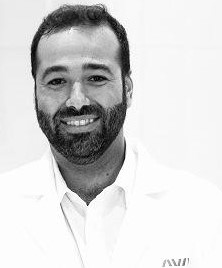
Beyond the Impact: Your Comprehensive Guide to Navigating Delayed Concussion Symptoms
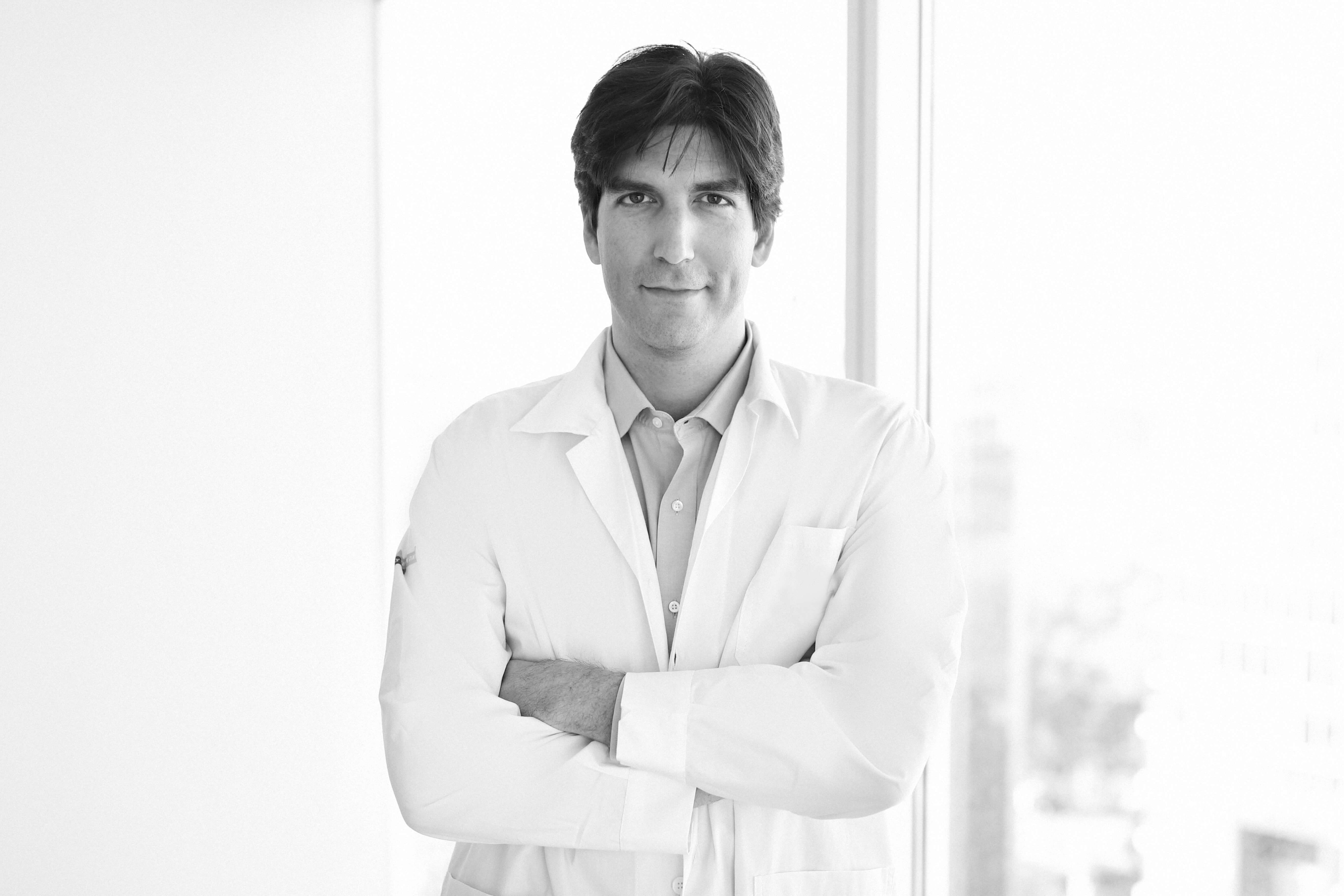

The CDC estimates that “1.5 million Americans survive a traumatic brain injury” every year. However, not all concussion symptoms show up right away. While the brain is a marvelous organ and usually amazes us with its healing capabilities, there are times when our brains need a bit more time and treatment to heal fully.
Post-concussion syndrome is a relatively common complication during concussion recovery. Fortunately, recovery from delayed concussion symptoms is possible even years after a traumatic brain incident.
If you or your loved one believes they have post-concussion syndrome, rest assured the Aviv Clinics team is here to help. We understand how debilitating living with PCS symptoms can be. We also understand how challenging it can be to find answers and solutions.
In this comprehensive guide, you’ll find essential research-backed details to help you better comprehend your condition and the treatment options available to you.
Understanding Post-Concussion Syndrome

At one time, a mild traumatic brain injury (mTBI), which many know simply as a concussion, was thought to be a benign event. With much research, experts now know that even minor injuries to the brain can have significant effects, especially with multiple incidents. These injuries can contribute to adverse neuropsychological outcomes—both acutely and long-term.
According to Aviv Clinics’ medical team, most concussion symptoms alleviate within about two weeks. When concussion symptoms last or continue to develop over a much longer period, these persistent post-concussive symptoms are known as post-concussion syndrome.
What Is Post-Concussion Syndrome (PCS)?
Post-concussion syndrome (PCS) is a condition where concussion symptoms continue beyond the expected recovery period, often months or even years. PCS occurs from traumatic brain injury (TBI)—a blow or jolt to the head from accidents such as falls, car accidents, and sports injuries. Even a whiplash injury can cause damage to the delicate brain tissue. Mild to severe cases of TBI can lead to PCS.

Symptoms of post-concussion syndrome include a variety of physical, cognitive, emotional, and sleep indicators such as:
- Headaches that won’t go away
- Feeling more exhausted than usual
- Having trouble concentrating and remembering
- Having difficulty falling or staying asleep
A concussion lasting more than three months may result in changes in cognition—whether physical and/or emotional—or sleep.
It is possible to have a traumatic brain injury and not know it. There are over 2.8 million people who sustain a TBI each year in the United States. When a TBI isn’t treated properly or the recovery isn’t complete, post–concussion syndrome can manifest.
What Causes Post-Concussion Syndrome?
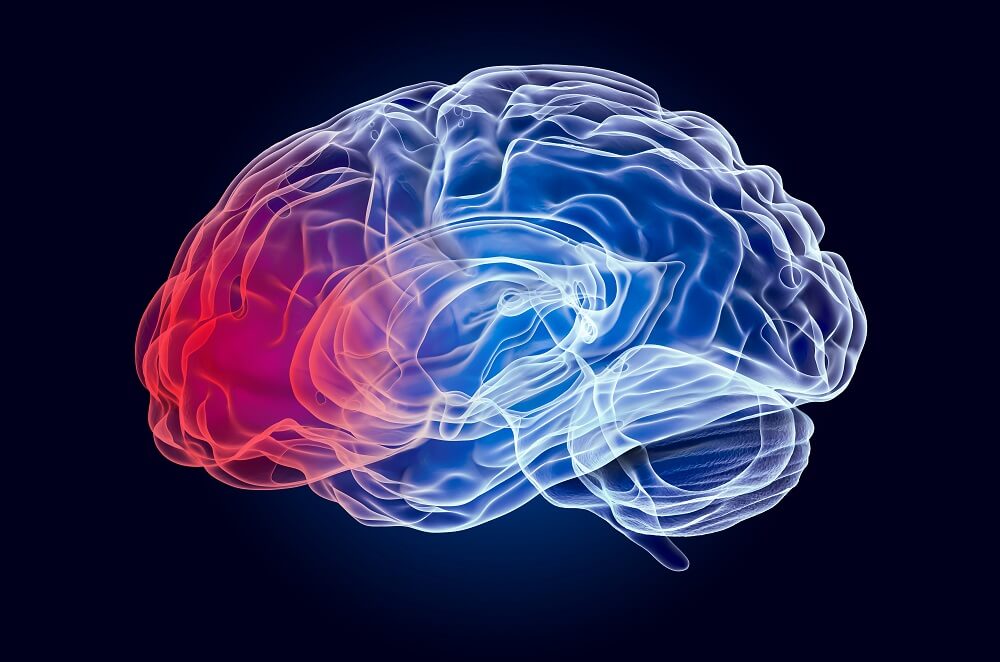
When someone experiences a traumatic brain injury, this blow or jolt to the head makes the brain rattle back and forth rapidly within the skull. This can cause shear force trauma to connective blood vessels and cells in the brain. This sudden movement can:
- Disrupt blood flow to specific brain regions
- Trigger chemical changes in the brain
- Stretch and damage brain cells
These activities put stress on your brain and prevent it from functioning normally.
A concussion might cause dizziness, ringing in the ears, blurred or double vision, fatigue, and vomiting in the short term. But over time, that same injury or repeated injuries may contribute to ongoing symptoms. Some people may not even connect an injury that happened years ago with their current symptoms, which can make it difficult to properly diagnose a TBI or post-concussion syndrome.
Can Concussion Symptoms Be Delayed?

While some symptoms surface immediately after a head injury, delayed concussion symptoms are possible due to the complex way the brain responds to trauma. The severity of the injury and the specific areas of the brain affected can influence the timing of symptoms.
Although there isn’t a quick test for PCS, there is ample research and understanding of this condition to help explain the signs and symptoms. A clinical evaluation is warranted for symptoms that linger past the typical timeframe for recovery.
Post-Concussion Syndrome Symptoms
Individuals experience a spectrum of symptoms associated with post-concussion recovery. From persistent pain to cognitive challenges, we can divide the symptoms of post-concussion syndrome into four categories:
1. Physical
Physical PCS symptoms are the most commonly recognized signs. Individuals with PCS may experience debilitating pain and discomfort, such as:
- Headaches
- Dizziness
- Nausea
- Vomiting
- Trouble balancing
- Vision problems
2. Cognitive
Cognitive issues are often the PCS symptoms that compel patients to seek medical advice. Cognitive PCS symptoms include:
- Feeling mentally foggy
- Feeling slowed down
- Having difficulty concentrating
- Having trouble remembering
- Being forgetful of recent information and conversations
- Experiencing confusion about recent events
- Answering questions slowly
3. Psychological/Emotional
Psychological and emotional symptoms can often be difficult to identify and associate with head injuries. Many people tend to overlook these emotional changes when, in reality, these changes can be a manifestation of PCS. These psychological/emotional changes include:
- Irritability
- Sadness
- Nervousness
- Anxiety
- Depression
- More emotional in general
4. Sleep
Last but not least, PCS symptoms can manifest in your sleeping patterns. For example, those with PCS may:
- Feel drowsier than normal
- Sleep more than usual
- Sleep less than usual
- Have trouble falling asleep
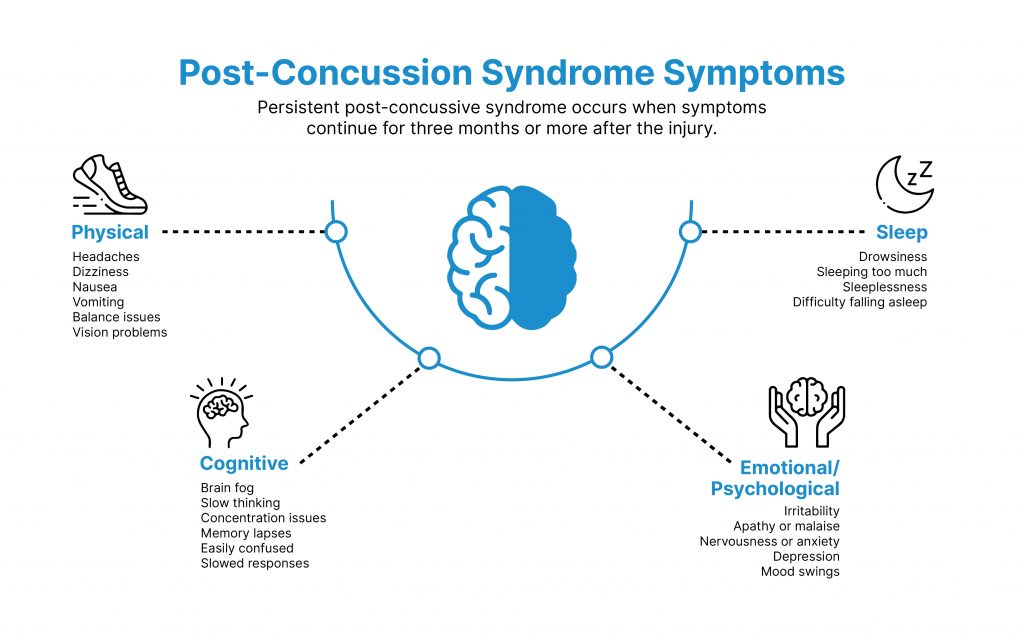
Where the damage occurs in the brain also plays a relevant role in the type of PCS symptoms.
For example, when head trauma inflicts damage to the frontal lobe of your brain—the area that manages emotional expression, focus, attention, and memory—this may stimulate emotional/behavioral changes, including “impaired basic and social emotion processing” and cognitive shifts.
While individuals may initially feel relatively okay after a head injury, symptoms can evolve in unexpected ways and even become more pronounced over time. Experiencing delayed concussion symptoms may signal that changes in the brain triggered by the injury just took time to fully manifest noticeable effects.
Why Concussion Symptoms May Be Delayed
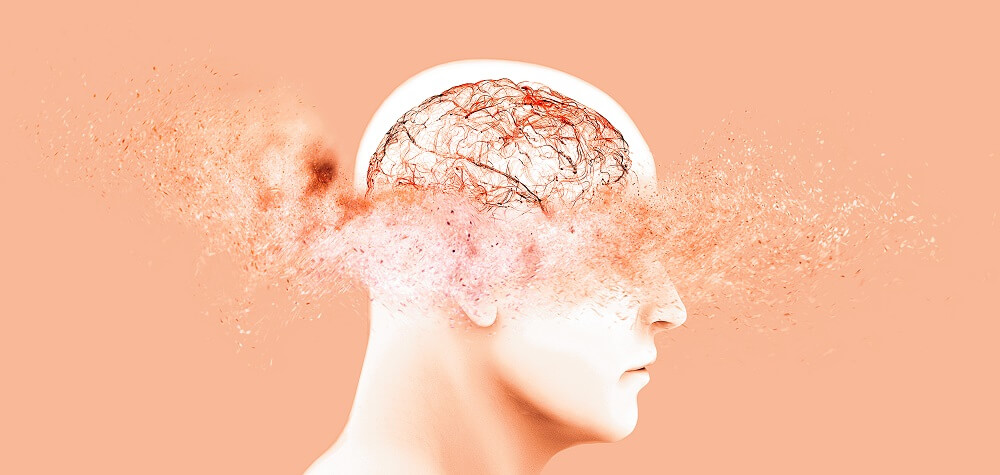
Delayed concussion symptoms can occur for several reasons. In an ideal world, you would know what’s happening inside yourself and why. But the reality is the body and mind are complex.
When someone experiences a traumatic brain injury (TBI), this causes physical, metabolic, and chemical changes to the brain. Even if you feel okay and only experience mild effects, this can change later.
Here’s why.
The brain has pathways—think of them as different routes you may take to work. Some roads have more traffic than others. Sometimes, you have to take the long way to get home. Brain pathways work the same way.
Let’s say you get into an accident that causes a head injury. Some brain pathways are damaged and can’t deliver the blood and oxygen supply the brain needs. Fortunately, other pathways and cells can take over to do the job. However, the healthy brain pathways might overcompensate over time for the lack of operating pathways. Your brain grows tired of the extra effort, and delayed concussion symptoms emerge. The evolution of concussion symptoms over time emphasizes the importance of ongoing monitoring and seeking adequate treatment.
Post-Concussion Syndrome: Answers to Common Questions
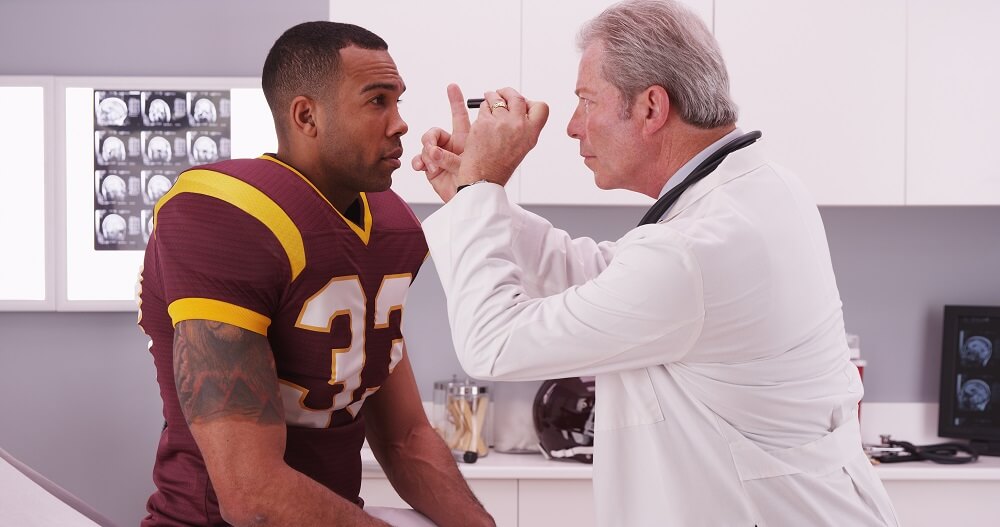
If you have been relentlessly searching for answers about possible post-concussion syndrome symptoms, we see and hear you. It can be incredibly challenging to not understand what is going on in your body and mind. You can rest assured that the Aviv Clinics’ medical team has answers for you.
How Soon Can Symptoms of PCS Start?
Symptoms of PCS may be an extension of your acute injury or they can start to show weeks after concussion when a concussion or TBI survivor just isn’t getting better. Over time, symptoms may not go away or may exacerbate. Symptoms can also appear later on in life.
How Long Can Symptoms of PCS Last?
PCS symptoms can last anywhere from weeks to years. The sooner you address your symptoms and get help, the more likely you’ll be able to get back to your normal activities and, for some people, return to your typical personality traits. There are risks to waiting too long to treat your post-concussion syndrome, which brings us to our next point.
What Are the Consequences of Waiting Too Long to Treat PCS Symptoms?
PCS symptoms can turn permanent if not addressed soon enough. According to Aviv Clinics’ team of certified physicians, usually, after three months, PCS turns into persistent PCS. And after a year, symptoms of post-concussion syndrome can turn chronic. Keep in mind that it doesn’t matter where or how you receive your head injury—these factors do not necessarily impact the severity of your PCS.
How Does the Brain Recover from a Concussion?
The brain is a powerful organ with incredible self-healing mechanisms. Even if you experienced an accident years ago, there’s still hope for recovery decades later. The key is finding the right treatment program to give the brain a delicate push for unleashing that potential.
Proper medical expertise and protocol can help:
- Encourage neuroplasticity, or the brain’s ability to adapt or react in response to injury or disease.
- Drive neurogenesis or nerve cell regeneration that occurs in the brain.
- Increase blood flow and oxygen in parts of the brain associated with executive function, vision, sensation, and more.
Most patients at Aviv Clinics see tangible progress roughly 8-12 weeks after starting their treatment plan. However, the recovery period varies depending on the severity of your condition, health background, lifestyle, and other factors.
How Long Can You Leave Post-Concussion Syndrome Untreated?
The longer you wait to heal PCS, the more likely your symptoms could become permanent. Dr. Mohammed Elamir, MD, FACP, further explains: “Damaged or injured tissues due to PCS carries a limited window for full recovery.”
Thus, the time to take action is now. If you have experienced an accident or head injury and have not been feeling the same, trust your instinct—take back control of your health by seeking PCS treatment.
What Are the Consequences of Waiting Too Long to Treat PCS Symptoms?
PCS symptoms can turn permanent if not addressed soon enough. According to Aviv Clinics’ team of certified physicians, usually, after three months, PCS turns into persistent PCS. And after a year, symptoms of post-concussion syndrome can turn chronic. Keep in mind that it doesn’t matter where or how you receive your head injury—these factors do not necessarily impact the severity of your PCS.
Thus, staying aware of your body is essential. Speak with a doctor if you feel anything out of the ordinary. As we noted earlier, when concussion symptoms last for over two weeks, that’s your cue to begin seeking a medical consultation.
Diagnosing Post-Concussion Syndrome
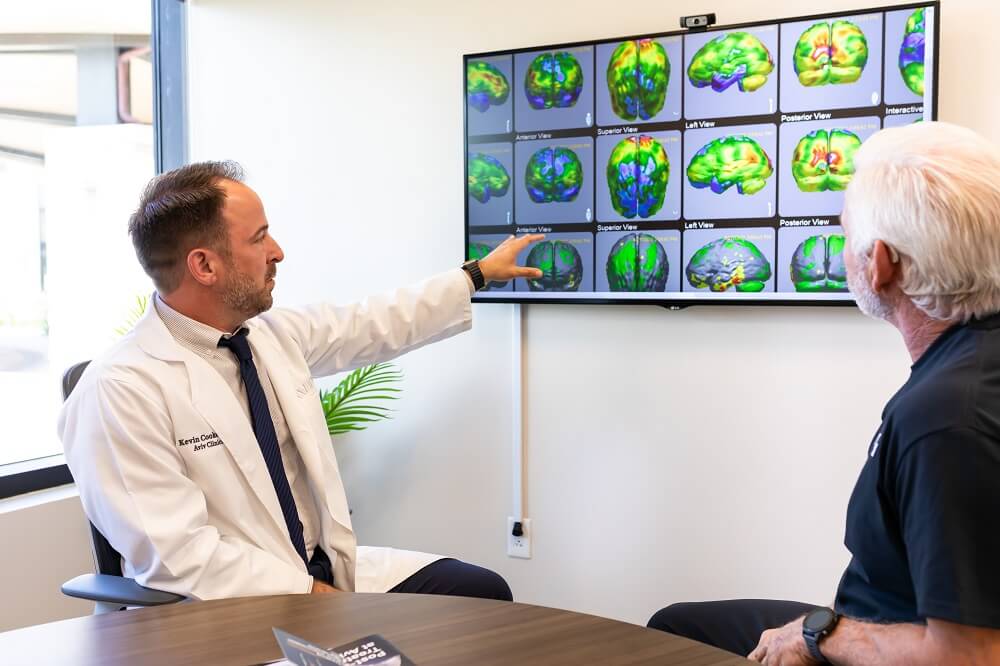
Diagnosing post-concussion syndrome involves a comprehensive assessment that examines multiple factors to get a clear picture of the patient’s experience. Obtaining a PCS diagnosis can be complex. Post-concussion syndrome symptoms and severity can vary daily, making the experience sometimes confusing. If you feel anything is off, we recommend reaching out to the experienced team of physicians at Aviv Clinics.
To diagnose PCS, your doctor will carry out a series of exams that may entail:
- Discussing your health and concussion history
- Conducting a physical examination
- Advanced MRI that maps out specific parts of your brain
- SPECT scan that points out blood flow in negatively affected brain areas
- Neurocognitive testing that examines your motor, verbal communication, and memory skills
- Neurological exams that may involve using lights and reflex hammers to assess your nervous system
It’s important to note that post-concussion syndrome is often a diagnosis of exclusion, meaning we must rule out other potential causes of PCS symptoms. The diagnosis can also evolve as symptoms persist or change.
Is There a Specific PCS Test?
While there isn’t one specific test you can take for a PCS diagnosis, and you certainly can’t get a conclusive diagnosis from online information, there are a variety of assessments that physicians can use to determine if you’re dealing with chronic post–concussion symptoms.
The goal of using a variety of evaluations is to ensure your mind and body are being thoroughly evaluated and to rule out any other cause for your symptoms. In addition to reviewing your injury history and monitoring your symptoms, your doctor may perform a combination of any of the above exams to determine if you have PCS.
Even without an easy test, PCS can be diagnosed by a medical professional. Diagnosis is based on a history of head injuries and reported symptoms, as well as a thorough assessment of brain health and function.
Once a physician has thoroughly evaluated you, you’ll be presented with a variety of treatment options for your symptoms.
Treatment for PCS

The good news is various treatments are available to help mitigate your PCS symptoms.
Some facilities depend primarily on cognitive behavioral therapies, which have shown strong results in improving sleep for those suffering from PCS. Others may focus on vestibular therapies for improved balance, psychological interventions for symptoms like depression or anxiety, or neuro-optical therapy for blurred or double vision.
However, in most cases, these treatments only address the symptoms of post-concussion syndrome and not the underlying cause.
Take time to learn more about your treatment options for post–concussion syndrome. Here are treatment protocols you should learn about if you’ve experienced any type of brain trauma. Each method holds unique strengths that may target the specific symptoms you are experiencing.
Vision Therapy
Vision therapy involves a variety of techniques that train your visual system. Those who may benefit from this are people who experience eye pain, vision problems, dizziness, and headaches.
Clinical studies in patients with post-concussion vision issues show that “the vast majority of cases” notice improvement after participating in vision therapy.
Neuro-Optometric Rehabilitation (NOR)
Neuro-optometric rehabilitation (NOR) therapy uses therapeutic prisms, lenses, and filters to stimulate parts of the brain that are not functioning properly. Those suffering from visual injuries and complications may find relief through NOR.
There is growing evidence NOR can enhance “visual skills and reduce visual symptoms” in patients with post-concussion syndrome.
Physical Therapy (PT)
Physical therapy (PT) is a form of care that aims to ease pain and help you move and live better. This may include massage, range of motion stretching, exercises, and heat treatments.
PT may “facilitate recovery and improve function” for those who struggle with physical symptoms of PCS. One small study where participants averaged 7 PT sessions reported that their physical symptoms became more manageable after treatment.
Cognitive Behavioral Therapy (CBT)
Cognitive behavioral therapy (CBT) is a psychological treatment that addresses problems such as depression and anxiety. CBT generally strives to change thinking and behavioral patterns. Studies indicate CBT may be an effective treatment method for “improving depression, anxiety, and social integration” in those with TBI.
Neuropsychology
Neuropsychology is a subset of psychology that focuses on how the brain and nervous system influence your thoughts and behaviors. It takes an educational approach, teaching patients about their minds and engaging in unique exercises.
Neuropsychology may be ideal for those with memory and concentration issues, as well as anxiety and depression. Research notes neuropsychology may play a vital role in helping better understand the link between the area of injury in the brain and their PCS condition and the “severity of concussion and who develops” the syndrome.
Hyperbaric Oxygen Therapy (HBOT)
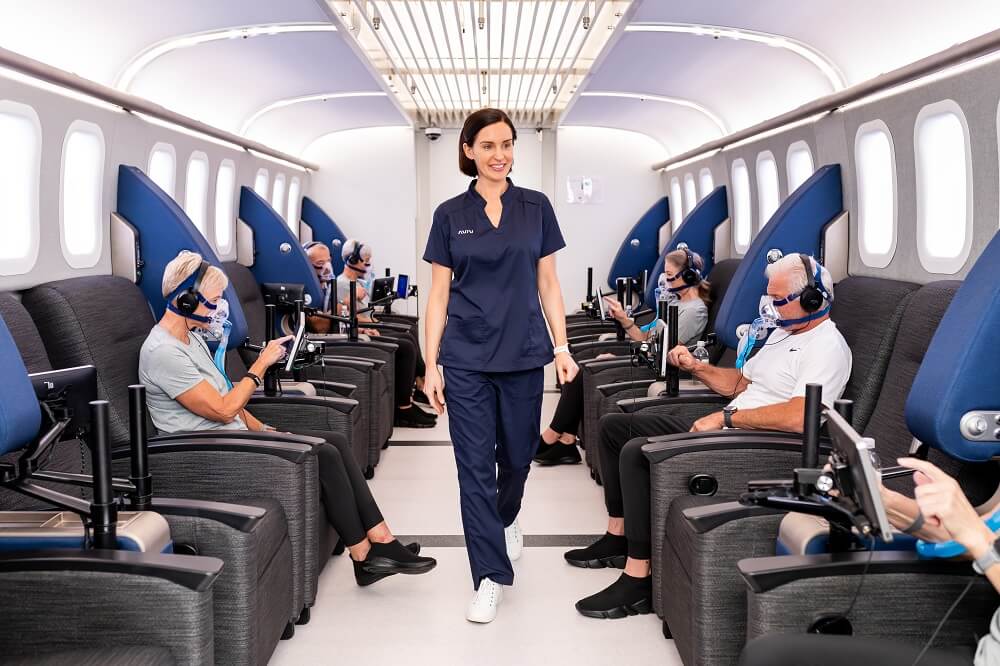
Hyperbaric oxygen therapy (HBOT) is a treatment method that increases oxygen levels in the brain and body. Here’s how HBOT works:
- Patients enter a room called a hyperbaric oxygen chamber, or suite, and receive treatment for one to two hours.
- In this suite, the air is pressurized higher than normal air levels, allowing 10-15 times more oxygen to be transported through the body
- Patients breathe in 100% pure oxygen via a mask while in the suite.
- Patients keep the oxygen mask on for 20 minutes and then spend five minutes with the oxygen mask off to fluctuate oxygen levels and encourage the body to release its natural healing mechanisms
Studies illustrate that HBOT delivered in this particular, unique protocol “can induce neuroplasticity”—the ability of the brain to modify and adapt based on environmental interactions—essentially rewiring itself, which may:
- Repair chronically damaged brain functions and tissues
- Improve the overall quality of life for patients with PCS
Additional research shows HBOT can significantly improve “memory, executive functions, information processing speed, and global cognitive scores.”
Research in the last two decades notes hyperbaric oxygen therapy (HBOT), in combination with cognitive, physiological, and nutritional training, can lead to significant neurological improvement after a concussion. The Aviv Medical Program is based on this research.
Aviv Clinics Treatment for PCS Symptoms
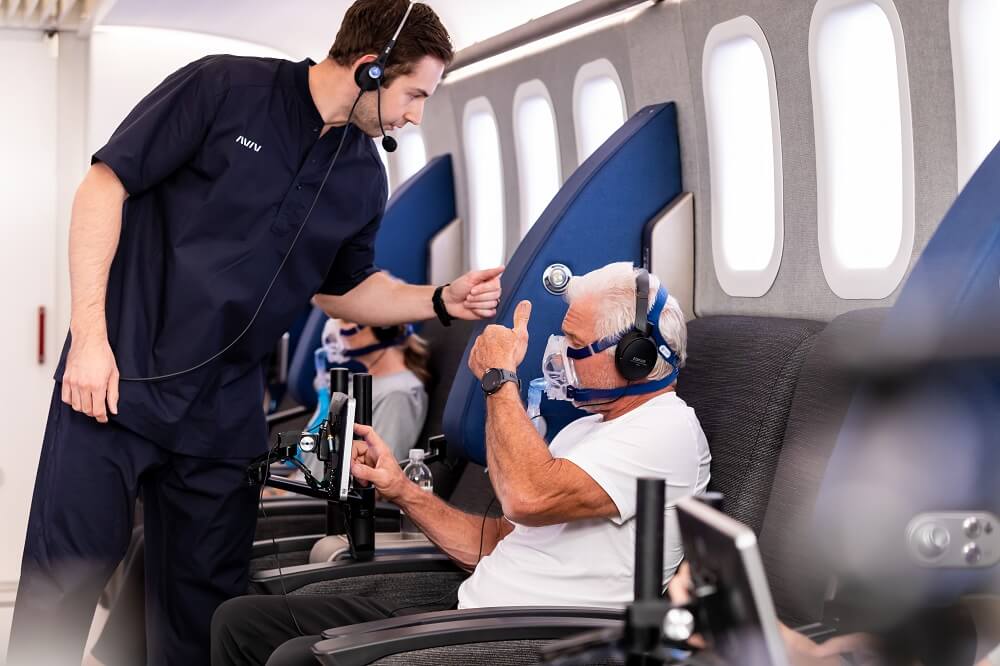
Many people go to multiple doctors before getting their post-concussion syndrome diagnosis. Due to the complexity of treating PCS, far too many patients receive minimally effective treatments. The results? Often, short-term fixes that don’t provide what you need.
If you’re looking for PCS relief, the Aviv Medical Program can be your answer.
With the Aviv Medical Program, our team of diverse clinical professionals (medical, cognitive, physical, and nutritional specialties) will perform advanced testing to identify exactly what is going on and craft a customized, long-term treatment plan.
- Our program features a group of certified medical professionals focused on your recovery. They will track data on your health and offer individualized solutions to elevate your quality of life.
- Treatment may include a combination of cognitive and physical training, dietary coaching, and HBOT protocols. HBOT can yield multiple positive shifts in the brain, such as new blood vessel formation and stem cell proliferation and differentiation.
The Aviv Medical Program takes a holistic approach that encompasses several of the areas we discussed above. We leverage the expertise of a diverse team of medical professionals based on your health assessment.
Aviv Clinics takes a three-step approach:
- In-depth medical assessment: We start with a comprehensive health assessment with advanced brain imaging exams (perfusion MRI, fMRI, SPECT, etc.). The goal is to attain a holistic and accurate understanding of your mind and body and map a treatment plan to maximize the program’s results.
- Tailored treatment program: The Aviv medical team will craft a personalized treatment program based on your medical assessments. This may entail cognitive and physical training, hyperbaric oxygen therapy (HBOT) sessions, and a nutritional regimen. The goal is to maximize your body’s healing process.
- Post-treatment assessment: The Aviv team will repeat the tests performed in your pre-assessment to measure your progress and make relevant recommendations.
Benefits of our program can include improved:
- Cognitive and motor functioning
- Physical performance (fitness, strength, coordination, balance)
- Immune system
- Stem cell growth (the building blocks of tissue rejuvenation)
At Aviv Clinics, our multidisciplinary medical team of physicians, neuropsychologists, physiologists, physical therapists, dieticians, and more ensures you receive the thorough medical treatment you deserve.
What Is HBOT’s Role in Relieving TBI Symptoms?
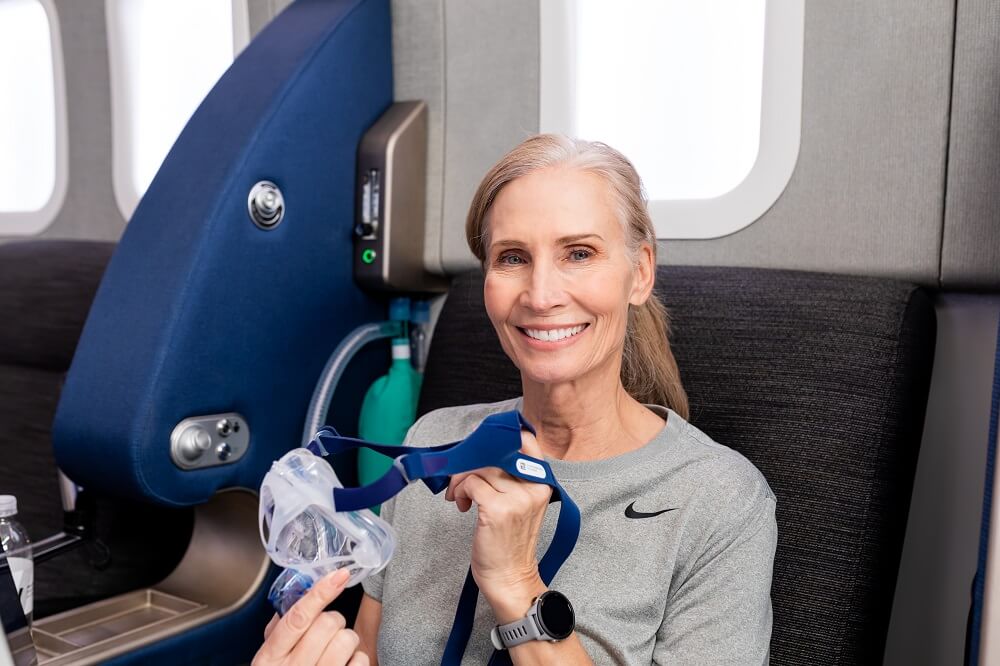
Dedicated research into brain healing reveals a therapy that has produced positive results in cases of TBI and post-concussion syndrome. Hyperbaric oxygen therapy (HBOT) has historically been accepted as an effective treatment for medical issues like wound healing, severe burns, and decompression sickness.
However, research in the last two decades reveals that HBOT, can repair areas of the brain that have been damaged due to TBI and concussion, as well as stroke, post-traumatic stress disorder, fibromyalgia, Lyme disease, and other neurological conditions.
What Results Can Individuals Expect?
To understand how studies show HBOT works as a treatment tool intended to address TBI and post-concussion damage, it’s important to know what changes occur in the brain during those injuries. Structural damage indicates a physical impact on the brain, such as bleeding. Metabolic damage is present when the brain’s cells are affected.
Traditional scans like CT and MRI may not be able to detect metabolic damage, especially if an injury occurred years ago. More advanced scans—like functional MRI and SPECT—are better able to identify areas of the brain that may be producing chronic post-concussion symptoms.
Research shows that HBOT and the nutritional, cognitive, and physiological therapies that can be included in the Aviv Medical Program may yield multiple changes in the brain:
- New blood vessel formation (angiogenesis)
- New and stronger neural connections
- Stem cell proliferation and differentiation
These neural, vascular, and cellular changes contribute to cognitive improvements in memory, executive function, attention, processing speed, and spatial memory. Individuals with brain-based motor skill challenges also benefit from this comprehensive therapy.
“HBOT can be successful because it addresses the cause of the symptoms, not just the symptoms alone. In combination with cognitive, physical, and nutritional coaching, some HBOT protocols can be very effective.” —Dr. Mohammed Elamir, MD, FACP
The physiological and nutritional aspects of the customized Aviv Medical Program elicit enhancements such as greater aerobic fitness, higher energy levels, improved sleep, and reduced pain. Overall, individuals report a significant improvement in their quality of life after completing the program.
For more research insights, explore the data and studies conducted by The Sagol Center, the world’s largest hyperbaric research and treatment facility.
Finding Relief: Aviv Clinics Success Stories
It’s easy to feel alone when living through PCS. Hope is here at Aviv Clinics. See how our team of certified medical professionals has helped a variety of individuals with unique health backgrounds get back to optimal health.
Here are two PCS patients who have leveraged Aviv Clinics’ comprehensive treatment program. Both received access to our multidisciplinary team of healthcare specialists and in-depth assessments:
Linden Perry: At just 15 years old, Linden suffered concussions from playing basketball and soccer. Her lingering PCS symptoms left her having balance issues, nausea, headaches, and blurred vision. Upon her customized treatment plan at Aviv Clinics, Linden returned to where she had started, academically and athletically.
Rodger Penley: Rodger suffered from a severe head injury after falling backward and hitting his head. He suffered from persistent and intense headaches and couldn’t walk without any support. After joining the Aviv Medical Program, his headaches disappeared after three days! By the conclusion of the program, Rodger fully restored his autonomy and independence.
Before you pursue any treatment plan, keep three things in mind:
- Speak with a physician first about your symptoms and health history. This can help them gain a comprehensive assessment and provide a personalized treatment plan.
You can speak to an Aviv Clinics physician at the clinic or over a virtual meeting for free.
- Be patient. Finding the right combination of therapies that work for you may take some time, but don’t give up. With the right medical program, you can receive the holistic treatment you deserve and find some relief.
- TBI and concussion can affect everyone of all ages. Thus, there is no standard/solid timeline for recovery. It may take several weeks or more to see improvement.
Aviv’s clinical team helps individuals of all ages and backgrounds win lasting health—the foundation of a good life. Our unique protocol has proven to give patients the vitality, health, and confidence they need to move forward.
Feel Your Best with Aviv Clinics
Post-concussion syndrome is a common complication during concussion recovery. Most individuals with PCS can recover even years after their accident, but finding a comprehensive treatment plan can be challenging. We’re here to get you on the right path.
Good health allows you to focus on the essential and enjoyable areas of your life. The time to invest in your health is now, and the Aviv Medical Program will be with you every step of the way.
If you feel you’ve been experiencing delayed concussion symptoms, contact Aviv Clinics. We’ll put you in touch with our certified team of physicians who can help craft a customized plan to aid in your healing process. Focused on service, safety, and comfort, Aviv Clinics is your first stop in getting back to optimal health and back to life.
Aviv Medical Program provides you with a unique opportunity to invest in your health while you age

